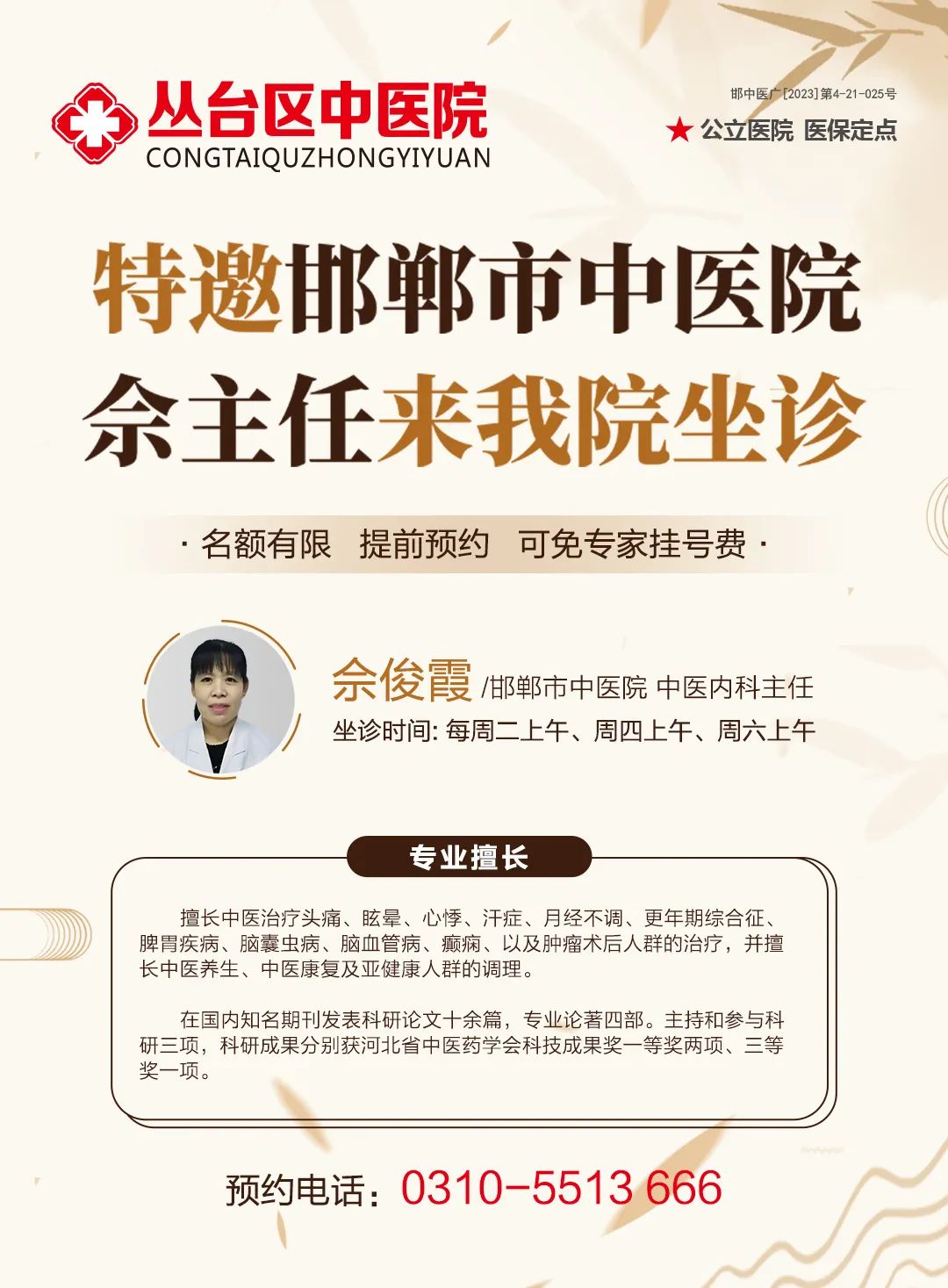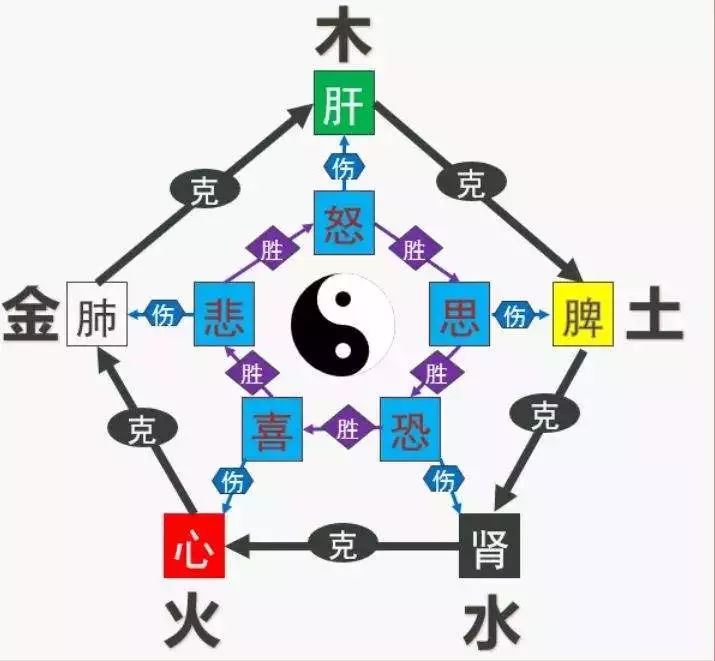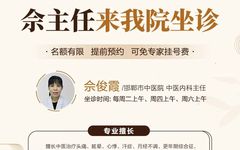
“Seven Emotions” refers to the seven normal emotional activities: joy, anger, worry, thought, sadness, fear, and shock. These are the responses of human consciousness to external stimuli. The Seven Emotions are closely related to the functions of the body’s organs. They are associated with the five organs, represented by joy, anger, thought, sadness, and fear, and are often referred to as the Five Emotions.
The Seven Emotions are different reflections of human responses to objective phenomena. Within a normal range of activity, they generally do not cause illness. Only sudden, intense, or prolonged emotional stimuli that exceed the body’s normal physiological activity can disrupt the flow of Qi, leading to imbalances in the Yin, Yang, Qi, and blood of the organs, which can result in disease. Therefore, as a cause of disease, the Seven Emotions refer to excessively strong, prolonged, or sudden emotional changes that lead to imbalances in the organs’ Qi and blood.
Illness caused by the Seven Emotions is termed emotional stagnation leading to disease. Additionally, due to certain chronic diseases, long-term dysfunction of the organs can lead to abnormal emotional states, referred to as disease-induced emotional stagnation. The Seven Emotions are also related to the body’s tolerance and regulatory capacity.
The pathogenesis of the Seven Emotions differs from the Six Excesses. The Six Excesses (wind, cold, heat, dampness, dryness, and fire) are external pathogenic factors that invade the body through the mouth, nose, or skin, while the Seven Emotions directly affect the related organs and cause disease.The Seven Emotions can not only trigger various diseases but also significantly influence the progression of diseases, promoting either improvement or deterioration.Since the Seven Emotions are one of the main pathogenic factors causing internal injuries, they are also referred to as “internal injury from the Seven Emotions.”

1
The Relationship Between the Seven Emotions and the Organs’ Qi and Blood
1. The relationship between the Seven Emotions and the organs: The emotional activities of the human body are closely related to the organs. The basic principle is: the heart governs joy; excessive joy harms the heart; the liver governs anger; excessive anger harms the liver; the spleen governs thought; excessive thought harms the spleen; the lungs govern sadness and worry; excessive sadness and worry harm the lungs; the kidneys govern shock and fear; excessive shock and fear harm the kidneys. This indicates that organ dysfunction can lead to corresponding emotional responses, and excessive emotional responses can damage the related organs (mutual dialectics). The Seven Emotions arise from and harm the Five Organs is of significant guiding importance in diagnosis and treatment.
2. The relationship between the Seven Emotions and Qi and blood: Qi and blood are the two fundamental substances that constitute the body and maintain life activities. Qi has a warming and promoting effect on the organs, while blood nourishes the organs. Qi and blood are the material basis for emotional activities, and there is a close relationship between emotional activities and Qi and blood. Changes in the organs’ Qi and blood can also affect emotional changes, hence the saying: “when blood is abundant, there is anger; when it is insufficient, there is fear“. The physiological activities of the organs must be based on Qi and blood, while emotional activities are manifestations of the physiological functions of the organs, thus the emotional activities of the human body are closely related to the organs’ Qi and blood.
2
The Pathogenic Characteristics of the Seven Emotions
Traditional Chinese Medicine (TCM) studies the laws of human life, not just patients and diseases, which is quite different from Western medicine. TCM often places humans within two circles; the first circle is the natural circle. The “Huangdi Neijing” states, “When the evil wind is excessive, it should be avoided at certain times,” for example, in spring, summer, autumn, and winter. TCM often emphasizes that when wind, cold, heat, dampness, dryness, or fire are excessive or not timely, they are referred to as the “Six Excesses” or “Six Evils”. When there is a lack of coordination between humans and the natural world, diseases will arise; this is the first cause of disease.
The second circle is society. What does this circle discuss? It discusses the relationship between human joy, anger, worry, thought, sadness, fear, and shock and human life and health. TCM has a saying in health preservation: “calmness and emptiness, true Qi follows“. This means that when your mood is in a very calm state, your Qi and blood will run normally. This normal flow is an important function for maintaining life activities. Conversely,when your emotions undergo abnormal changes, they can disrupt the flow of Qi and blood, leading to disease.

3
The Liver Governs Anger; Poor Liver Function Leads to Irritability
Many women are particularly prone to anger, especially around their menstrual periods. Why? Because women are primarily governed by blood and the liver is their innate organ. When menstruation approaches, the blood descends while Qi rises, leading to an imbalance between Qi and blood. When Qi is excessive, it becomes fire, causing irritability. Therefore, women should pay attention to regulating their emotions during their menstrual periods, avoiding excessive anger and depression. Both excessive anger and depression are not in line with normal physiological states, and over time, they can lead to disease.
In the clinic, I often tell women, if you argue with your husband, make sure to tell him to leave after you have cried; don’t let him leave while you are still angry. Why? Because the liver governs anger; when you are angry, and you argue, your liver Qi becomes very strong. If he leaves at that moment, your anger becomes stagnant inside, unable to be released. If it remains stagnant for too long, it can transform into heat, and when he returns, the argument continues. If you cry, what happens? Crying is related to the lungs; when you cry, the lung Qi becomes vigorous, which calms the liver Qi, because in TCM, the lung and liver correspond to the metal and wood elements, which have a mutually restraining relationship. When lung Qi is vigorous, liver Qi calms down. You can try it; when you feel particularly depressed, find a place where no one is around and cry it out. After crying, you will feel much better.
We also see many patients with liver diseases who are particularly irritable. Why? Because the liver governs anger, the liver meridian inherently has heat, so they easily become angry. Therefore, when you feel particularly troubled and irritable for no reason, you should seek TCM help to adjust your liver. This is not the same as Western medicine’s liver, nor does it mean you have hepatitis; rather, it indicates that your emotional state is problematic. This requires an adjustment process. We know that many diseases transition from quantitative changes to qualitative changes; when the quantity changes, it may not be detected. You may go to a Western doctor who says you are fine. For example, some people feel very uncomfortable after getting angry, with headaches and a feeling of pressure in the head. You may go to the hospital, and the Western doctor says you are fine, with all your indicators normal. But you still feel uncomfortable; if you take some herbs to calm the liver and regulate the Qi, it will help.
4
The Heart Governs Joy; Excessive Joy Can Scatter Qi
The heart governs joy, and we all know that we say “the heart blooms with joy,” not “the liver blooms with joy.” We also see many elderly patients with heart problems; why do they often pass away happily when their children return? Because excessive joy can scatter Qi. So, while joy is a good thing, excessive joy may not be beneficial.
5
The Spleen Governs Thought; Excessive Worry Harms the Spleen and Stomach
The spleen governs thought; “thought” refers to excessive worry. People who worry excessively will have problems with their spleen and stomach. Those who frequently use their brains often have poor spleen and stomach function. Why? Because we all know that we need to eat every day, and after eating, the Qi and blood go to the stomach to aid digestion. If your blood does not go to the stomach but instead stays in the brain for a long time, the spleen and stomach function will be affected.
For example, many long-distance drivers have stomach problems. Why? Because of their occupational habits; as soon as they sit in the driver’s seat, the blood naturally goes to the brain. Over time, you can imagine that their blood is always going up, while the food they eat does not get digested properly. Eventually, internal diseases will manifest, typically as gastric ulcers or gastric prolapse. Therefore, TCM states that the relationship between thought and the spleen and stomach is that excessive worry harms the spleen.
6
The Lungs Govern Sadness; Excessive Sadness Harms the Lungs
The lungs govern sadness; everyone has seen “Dream of the Red Chamber”; Lin Daiyu certainly had lung problems; otherwise, she wouldn’t cry endlessly. Frequent crying and shedding tears are definitely related to the lungs. Recently, I treated an elderly gentleman with lung cancer who said, “Doctor, I don’t know why, but I feel like crying when I see you.” I said, “This is because you have a problem with your lungs, as the lungs are directly related to the emotion of sadness.”

7
The Kidneys Govern Fear; Fear Can Scatter Kidney Qi
The kidneys govern fear, and fear is directly related to the kidneys. In “Romance of the Three Kingdoms,” when Zhang Fei shouted on Changban Bridge, he scared a person next to Cao Cao to death; I think that person must have had weak kidney Qi. Fear scatters Qi; there is a saying among the people that when someone is scared, they lose control of their bowels. Why does this happen? Because the kidneys control the two excretions. When a person is excessively fearful, their kidney Qi scatters, and the kidney’s ability to hold is weakened, leading to incontinence.

【Summary】 Therefore, the changes in emotions such as joy, anger, worry, thought, sadness, fear, and shock are closely related to the Five Organs in TCM. In fact, when we read historical novels, we see many such examples. For instance, why did Wang Xifeng fall ill? “After plotting too much, she lost her life.” She was always scheming against others, and in the end, heaven schemed against her. Lin Daiyu cried every day, and eventually, her tuberculosis developed. In “Romance of the Three Kingdoms,” Zhou Yu was so young but died because of jealousy and imbalance in his mindset, always feeling that Zhuge Liang was smarter than him. It could be said that Zhuge Liang caused his death, but it is more accurate to say that he caused his own demise.

